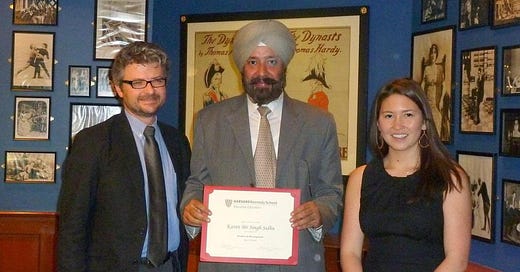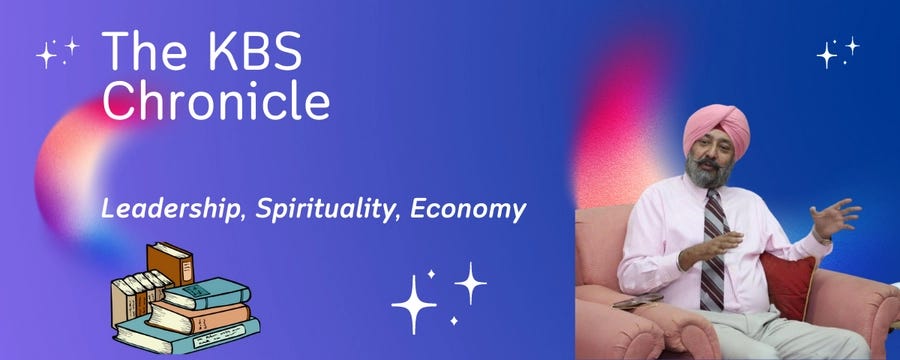Plagiarism Plagues Pillars of Pedagogy?
Navigating the Nuances of Plagiarism and Originality in the Modern Era.
Unraveling Nuances of Academic Integrity aka Plagiarism
The recent fervent discussions surrounding Diversity, Equity, and Inclusion (DEI), prominently featuring Elon Musk, Bill Ackman, and Mark Cuban, have sparked a broader dialogue on academic integrity and the shifting landscape of plagiarism. Our previous article delved into these complexities, underscoring the timeliness and relevance of this debate in an era marked by the rapid growth of AI technology. The distinction between original thought and the reworking of existing knowledge is becoming ever more nuanced, raising critical questions in the wake of AI's expanding role in academic and intellectual endeavors.
The Harvard Resignation: A Crucial Turning Point in Academic Dialogue
At the center of this debate stands the resignation of Harvard's first black female president, Claudine Gay, in the wake of plagiarism allegations in her Ph.D. thesis, coupled with her contentious handling of antisemitism on the campus. This significant event triggered profound discussions about the implications of DEI in high-level academic appointments and raised questions about its potential to overshadow merit and academic integrity. The circumstances leading to Gay's resignation, widely perceived as a compelled action, marked a critical juncture in the discourse on how academic institutions should judiciously align their diversity efforts with a steadfast dedication to scholarly excellence.
MIT's Ethical Crossroads: Plagiarism Allegations
As the discourse on Diversity, Equity, and Inclusion (DEI) intensified, the Massachusetts Institute of Technology (MIT) faced its ethical challenges. Chairman Mark Gorenberg of the MIT Corporation found himself at the center of a financial controversy. The allegations revolved around the use of MIT funds for donations to a non-profit organization, Parity.org, where Gorenberg’s spouse held a significant management role. This situation at MIT, arising amidst the broader DEI debate, highlighted the complexities of institutional governance, ethical funding, and the potential conflicts of interest within top-tier educational establishments.
Parallel to this, Bill Ackman, a key figure in the DEI debate, became embroiled in a related controversy. "Business Insider” reported that Ackman’s wife, Neri Oxman, had a dissertation at MIT with numerous unacknowledged references from Wikipedia. In a bold response, Ackman challenged the academic integrity of MIT itself, proposing an exhaustive review of all MIT theses and publications for plagiarism, explicitly including those of its President, apart from the Violations of the IRS code by the Chairman Gorenberg. This move broadened the scope of the discourse, intertwining issues of academic ethics with personal egos and vendettas.
Ackman's actions didn't stop there. He also turned his scrutiny towards ‘Business Insider’ and its holding company. Delving into their compliance with journalistic ethics and standards, Ackman's investigation is not proposed to be limited to plagiarism but encompasses various aspects of statutory compliance and ethical journalism. This ongoing battle of allegations and investigations between Ackman and the media reflects the intricate dance of power, influence, and ethics in the realms of academia and journalism, underlining the need for clear, updated standards in an increasingly AI-influenced world.
Redefining Originality and Plagiarism in the AI Era
In today's digital era, the old saying "Originality is the art of concealing your source" acquires a fresh perspective, especially with the rise of advanced AI tools like ChatGPT-4. The conventional definition of plagiarism, historically understood as the act of taking someone else's work or ideas and passing them off as one's own, is evolving. Derived from the Latin 'plagiarius' meaning 'kidnapper' and the Greek 'plagion' for 'a kidnapping', plagiarism has long been viewed in the context of direct copying or paraphrasing.
However, the advent of AI technology challenges this traditional view. The essence of originality in the age of AI is increasingly about the nuanced interpretation and transformation of existing knowledge. It goes beyond simply reproducing or acknowledging sources. In this new landscape, originality involves creatively building upon existing ideas, adding unique insights or perspectives, rather than just reiterating them. This shift calls for a reexamination of what constitutes plagiarism, recognizing that in the digital age, the boundaries of intellectual property and creative expression are more fluid and complex than ever before.
A Call for a Balanced Approach in Redefining Plagiarism
The evolution of AI technologies like ChatGPT-4 calls for a reevaluation of plagiarism's definition, demanding a more balanced approach. It's essential to acknowledge that all human knowledge is a tapestry woven from the threads of past wisdom. However, stretching the concept of plagiarism too extensively risks stifling creativity and intellectual progress. In this era, where simply enclosing extensive paragraphs in quotation marks or attributing them to original sources is deemed sufficient to avoid plagiarism, our standards appear outdated.
When ideas or lines of thought are derived from previously published works without adding new perspectives, it falls into a more severe category of plagiarism, made increasingly easy with AI tools. Academic papers that heavily rely on attribution, consuming a significant portion of their content, can no longer be considered original by these evolving standards.
Yet, we must not overextend the concept of plagiarism to the point where it impedes the building of knowledge upon existing foundations. Equally important is the need to prevent those with substantial resources from using their power to unfairly target members of reputable public institutions. Given the high costs of litigation in the USA, a new equilibrium is necessary—one that respects the integrity of academic and intellectual work while adapting to the challenges and opportunities presented by technological advancements. This balance is crucial in ensuring that the quest for innovation and originality is conducted in a manner that is fair, equitable, and respectful of the collective heritage of human knowledge.









👍🏼🙏